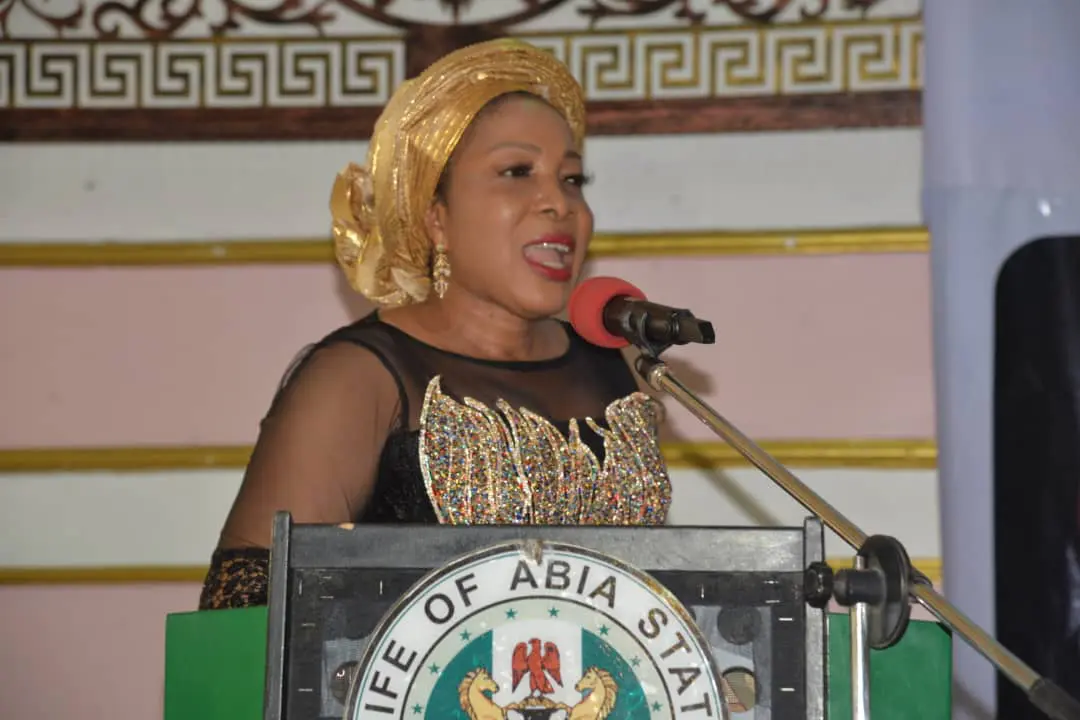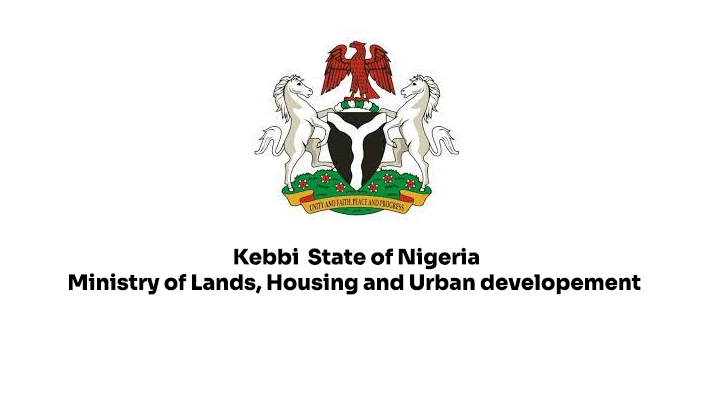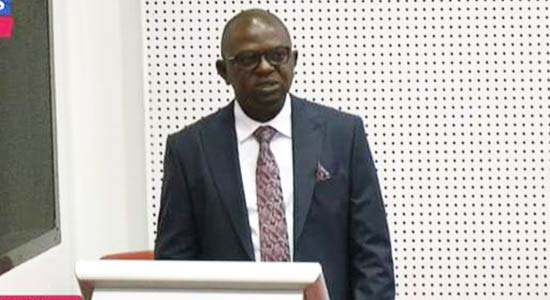Some government policy announcements this past week indicate that Nigerian economic managers are rethinking the appropriateness of existing policy measures to move the economy in the desired direction for economic prosperity. The Governor of the Central Bank of Nigeria, Mr Olayemi Cardoso, hinted at bringing down interest rates at the next Monetary Policy Committee meeting. It is not unlikely that the Bank has realised that higher interest rates imply a high cost of borrowing or high cost of production for industrialists, thus fuelling inflation. The nominal interest rates on lending are in the range of 25 to 30 per cent and the argument has been what kind of business that could generate over 20 to 30 per cent profit in a year! Thus, the high interest rate reduced credits to businesses and constrained the expansion of many enterprises and employment generation.
The decision of the Federal Government to join hands with the state governments in promoting agriculture, particularly food production is the right thing to do. Many of the state governments have no plan but to survive with federal allocations and palliative funds. Of course, the Federal Government too has no national economic plan but gets lots of suggestions from which to choose from national and international communities.
The backing or cooperation on agriculture from the Federal Government would assist many of the states to engage in meaningful production. What is important is that each state should specialise in the crops best suited to the land and weather. Fortunately, most food crops can be produced multiple times within a year. They used to call them annual crops, and research outputs from research institutes have shortened the planting to harvesting period for most crops.
Agricultural production in this state of the nation should be modernised and be focused on local consumption rather than the production for exports. Some states like Lagos and Rivers are more suited for processing farm outputs than the production of crops themselves and the Federal Government will also need to assist them. From the beginning, timelines and targets are set in the planning process.
The policy of improving the capital base of banks through bank consolidation processes is capable of promoting portfolio investments from local and international markets, apart from improving the ability of the banks to withstand internal and external shocks. Strengthening the activities in the capital market in this manner is capable of positive multiplier effects on economic development in the macroeconomy because of the medium to long-term funds the market generates. The bank consolidation exercise can make credits cheaper in the money market due to the amount of funds the banks will attract and the eventual credit creation activities by the banks.
Lastly, the government’s decision to release N1.2 trillion for items in the capital expenditure is capable of greater multiplier effects on economic growth than concentrating on recurrent expenditure. Realising that this is the second quarter, it is quite late in the day. However, if the decision is not continuous but a discrete implementation, it may not have the desired positive effects. By the way, which budget is the government implementing – 2023 or 2024?
Two major problems still exist: The issue of mounting debts and debt servicing, as well as the value of the exchange rate. A careful study of the book entitled, “Concession of an Economic Hit Man” by John Pekins (which can be downloaded from the net) explains how advanced economies, particularly the United States, use the Bretton Woods institutions to promote economic subjugation through debt manipulations. The World Bank or IMF would warn developing countries, on the one hand, about the precarious situation of their growing external debts, and on the other hand, offer the countries loans to tidy up their economies.
You cannot use loans to tidy up a debt-dependent economy. Once these countries get hooked, the institutions (World Bank and IMF) start introducing measures that could compound the problems. The debt-sustained economy will be told, for example, to scale down the huge employment in the public sector which results in the first level of unemployment and a fall in government revenue from personal income taxes.
The next is to ask the country to remove subsidies on consumption and production as these are not good for fiscal management. Finally, they raise issues of low revenue from taxes and ask the government to increase taxes on a number of consumer goods while liberalising trade by reducing or removing tariff on imported goods which are produced in the advanced economies. This policy is capable of withdrawing money from the economy such that money is unable to perform its primary function as a medium of exchange and dampen consumption. Secondly, it promotes production and employment in the countries that produce the imported goods, the advanced economies. Which of these policies have we not implemented or are we not implementing in recent times?
No developing country goes through these processes and repays the loans. It is a well-crafted cul de sac. The country going through these policies will be unable to increase domestic production to meet the demand for goods, resulting in inflation. Its foreign reserves will not grow because it will be using foreign receipts to pay and service debts, pay for imports, and support the international value of its domestic currency through interventions.
When Kemi Adeosun assumed office as the Minister of Finance, she opined that Nigeria would have to borrow its way out of poverty. We warmed against such a proposition but she pursued her dream and by the time she left, her successor, who happened to be her assistant or the Minister of State for Finance, Zainab Ahmed, had imbibed the policy, either for the personal gain that is attached to sourcing foreign loans or out of sheer incompetence. The Nigerian debts mounted to the point that no institution was ready to give us loans and the Muhammadu Buhari administration had to resort to direct borrowing from the CBN. What compounds our debt case is that the borrowed fund is often stolen and returned to the international market by the thieves. That is why research reports have, in recent times, shown that there is a negative relationship between debts and economic growth in Nigeria!
The World Bank and IMF had set a target of a debt-to-GDP ratio of 50 per cent and the Buhari government remained comfortable with their debt statistics since the borrowing was far from that ratio; albeit, it is not the GDP that pays debts but a country’s revenue. So, it is dubious to use the debt-to-GDP ratio rather than the revenue-to-GDP ratio. Whatever the case, the present government continued from where the Buhari government stopped and has now hit the debt-to-GDP ratio of 50 per cent and still counting. That is why the external reserves remain a weak instrument to support the exchange rate and the exchange rate has declined by almost 150 per cent since this government assumed leadership.
The country continues to go in circles of palliatives on borrowed funds. There is a revelation that one dead military chief had $92 billion in his foreign account in the United States. Is it still there or has it been transferred to another officer’s account? This government seems not to show interest even when it’s clear we need such money to shore up our reserves. Is someone waiting for the issue to cool off before acting for personal benefit?
Nigeria is an interesting place. An accountant-general stole about N109 billion and is still walking on the streets, collecting chieftaincy titles as he lives on in bliss. His successor, who was also accused of stealing billions of naira, is asking for time to settle part of the money, which means he has agreed to the fraud. Should they be walking on the streets as if the government and the people are fools?
The government needs to recalibrate the economy to achieve an increase in domestic output, generate employment, achieve low inflation, and improve the external value of the naira. Thus, in addition to the commendable policies highlighted above, the government must retrieve the $92 billion wherever it is and add it to our reserves. Of course, no country would want such a huge money withdrawn from its economy but if it is transferred into our reserves with the World Bank, it remains in America and useful to us. All verifiable stolen monies should be returned to the CBN vault for budget implementation and let us stop borrowing.

 4 months ago
30
4 months ago
30















 English (US) ·
English (US) ·